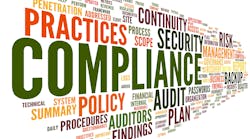Congress has introduced legislation that would make "Organized Retail Crime" a federal offense. This is good news as current state laws only address ORC as an individual state issue. Frequently ORC cases encompasses thefts from multiple states making it extremely difficult to procesute the offenders.
This legislation will also go a long way in addressing e-fenceing and put a crimp in the on-line sales of stolen property. On-line sellers would need to show that they have taken steps to insure that stolen property is not being sold on the internet. The bill would also allow retailers to sue on-line auction sites who sell their stolen merchandise.Â
There is a current discussion taking place on the SecurityInfoWatch forums - join in.
From the National Retail Federation - Â
Washington, July 15, 2008 – The National Retail Federation welcomed today’s introduction of legislation that would make organized retail crime a federal offense in an attempt to stop a growing problem that costs retailers and consumers as much as $30 billion a year and threatens public safety through the sale of tainted goods.
“The introduction of this bill shows that Congress realizes organized retail crime is more than just shoplifting,†NRF Vice President for Loss Prevention Joseph LaRocca said. “Organized retail crime is a large and growing national issue with dollar losses bigger than robbery, larceny, burglary and auto theft combined. It also threatens public health and safety when thieves tamper with items like baby formula or over-the-counter medications before offering them for sale. This legislation will make organized retail crime part of our federal criminal statutes, and give law enforcement officers and prosecutors the tools they need to put these criminals behind bars.â€
“A significant portion of this bill deals with on-line fencing of stolen goods,†LaRocca said. “On-line auctions and other markets on the Internet provide a Wild West environment where thieves can re-sell stolen property to customers on a national or even international level with virtually no questions asked. Requiring Internet marketplaces to live up to their responsibility to block the sale of obviously stolen merchandise is not unreasonable. We’ve seen from this week’s ruling on the sale of counterfeit goods that current laws are not adequate to police these sites. It’s time for Congress to bring on-line crime under control.â€
H.R. 6491, the Organized Retail Crime Act of 2008 was introduced today by Representative Brad Ellsworth, D-Ind., with Representative Jim Jordan, R-Ohio, as the lead co-sponsor. The bill would define organized retail crime as “the acquiring of retail merchandise by illegal means for the purpose of reselling the items†and make such activity – including transportation, sale or receipt of stolen retail goods, – a federal crime.
Among other provisions, sale of stolen or counterfeit gift cards, or items with faked Universal Product Codes or Radio Frequency Identification chips would be considered fraud. Those found guilty of committing or facilitating organized retail crimes would be subject to appropriate existing fines, prison terms and forfeiture, and the legislation would require the U.S. Sentencing Commission to review its guidelines for cases involving such crimes.
The bill would also establish that operation of on-line marketplaces such as auction sites can be considered “facilitation†of organized retail crime unless the operator can show that specific steps had been taken to ensure that goods being sold were not obtained by theft or fraud. Site operators would be required to “expeditiously†investigate complaints that stolen items are being sold, maintain records of the names and physical addresses of high-volume sellers, and require high-volume sellers to either post that information along with merchandise offerings or make it available upon request to any business with a reasonable suspicion about the merchandise.
Operators of on-line marketplaces could also be sued by any business whose stolen goods were sold. Retailers lose between $15 and $30 billion to organized retail crime each year, according to the FBI and retail loss prevention experts. The figure compares to the $18 billion for robbery, larceny, burglary and auto theft combined reported by the FBI Uniform Crime Report.
In addition, a record 85 percent of retailers reported that they were victims of organized retail crime in the past year, according to NRF’s annual survey on the issue.
Organized retail crime rings typically target everyday consumer products that are in high demand and easy to steal such as infant formula, razor blades, batteries, analgesics, cosmetics and gift cards. More expensive products such as DVDs, CDs, video games, designer clothing and electronics are also highly prized. Once stolen, the goods are resold at pawn shops, flea markets, swap meets and the Internet. The thefts force retailers to increase prices to cover the losses, and threaten public health when crime rings tamper with items such as infant formula or medication by extending expiration dates or repackaging and relabeling the items.
The National Retail Federation is the world's largest retail trade association, with membership that comprises all retail formats and channels of distribution including department, specialty, discount, catalog, Internet, independent stores, chain restaurants, drug stores and grocery stores as well as the industry's key trading partners of retail goods and services. NRF represents an industry with more than 1.6 million U.S. retail companies, more than 25 million employees - about one in five American workers - and 2007 sales of $4.5 trillion. As the industry umbrella group, NRF also represents over 100 state, national and international retail associations. Source: NRF
- Curtis Baillie - Security Consulting Strategies, LLC

